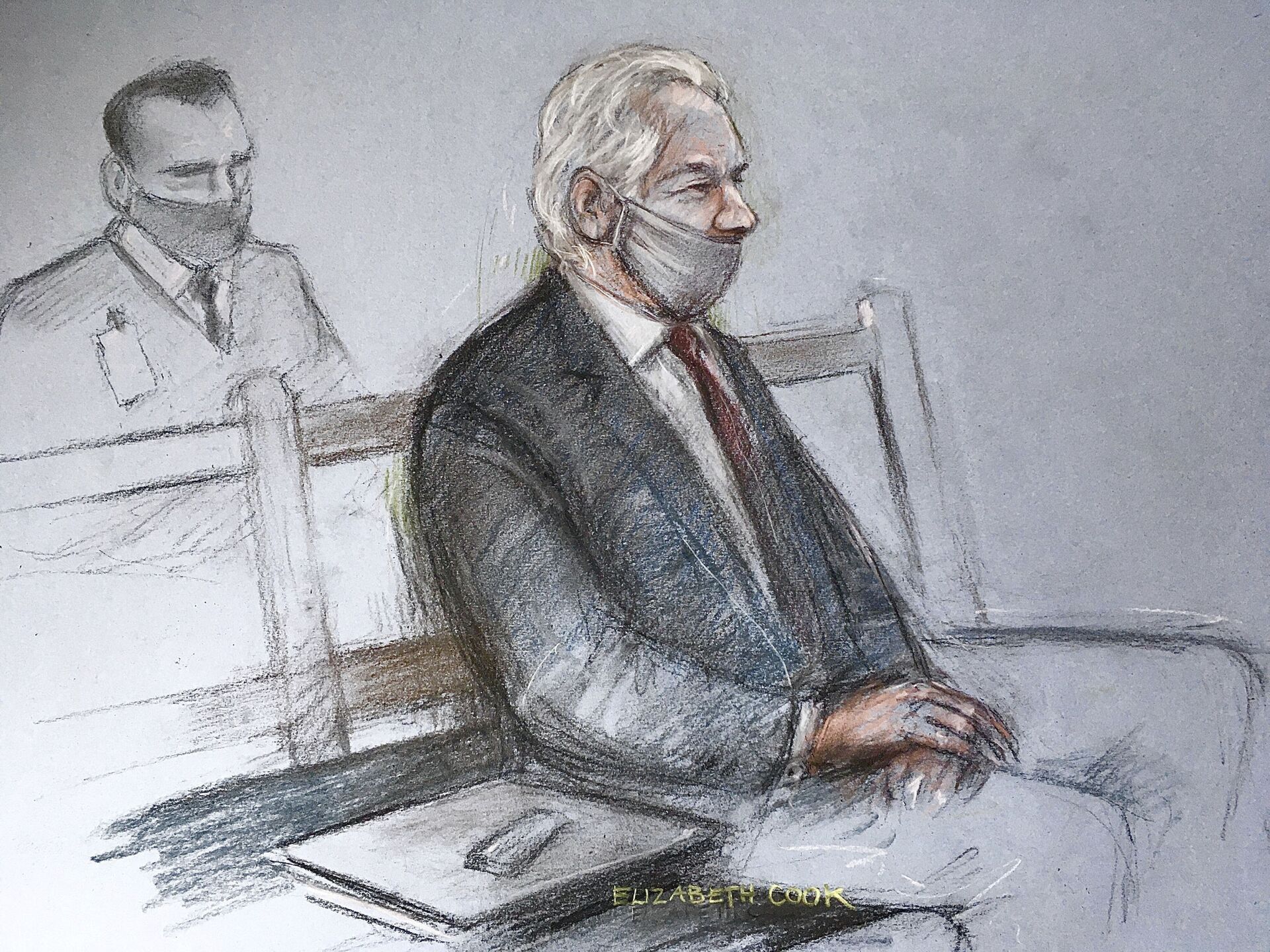Assange's Defence Not Excluding Applying to ECHR After London Court Decision, Lawyer Says
09:14 GMT 21.04.2022 (Updated: 15:19 GMT 28.05.2023)

© Photo : Mohamed Elmaazi
Subscribe
QUITO (Sputnik) - The defence team of WikiLeaks founder Julian Assange does not rule out the possibility of applying to the European Court of Human Rights (ECHR) after a UK court ordered his extradition, Carlos Poveda, Assange 's lawyer, told Sputnik on Thursday.
"There is another pending appeal that was filed with the first instance ... It will take at least four months to make a final decision ... and after that it will be possible to apply to the European Court of Human Rights," Poveda said.
Earlier this week, the UK Supreme Court denied Assange's appeal against a December 2021 ruling by the London High Court to allow his extradition to the United States, where he may be imprisoned for life. The court argued that the case "didn’t raise an arguable point of law".

This is a court artist sketch by Elizabeth Cook of Julian Assange appearing at the Old Bailey in London for the ruling in his extradition case, in London, Monday, Jan. 4, 2021. A British judge has rejected the United States’ request to extradite WikiLeaks founder Julian Assange to face espionage charges, saying it would be “oppressive” because of his mental health. District Judge Vanessa Baraitser said Assange was likely to kill himself if sent to the U.S. The U.S. government said it would appeal the decision. (Elizabeth Cook/PA via AP)
© Elizabeth Cook
The Westminster Magistrate's Court confirmed Assange's extradition on Wednesday.
The WikiLeaks founder is wanted by the US on espionage charges for publishing classified documents and video footage that exposed atrocities committed by US forces during their campaigns in Afghanistan and Iraq.
In 2012, instead of appearing in court as his bail conditions demanded, Assange sought shelter in the Ecuadorian embassy in London, as he believed a case against him was a pretext for the British authorities to extradite him to the US.
He remained at the embassy until 2019, after his political asylum status revoked by the Latin American country. As a result, Assange was arrested, and has been kept at the Belmarsh prison ever since.


